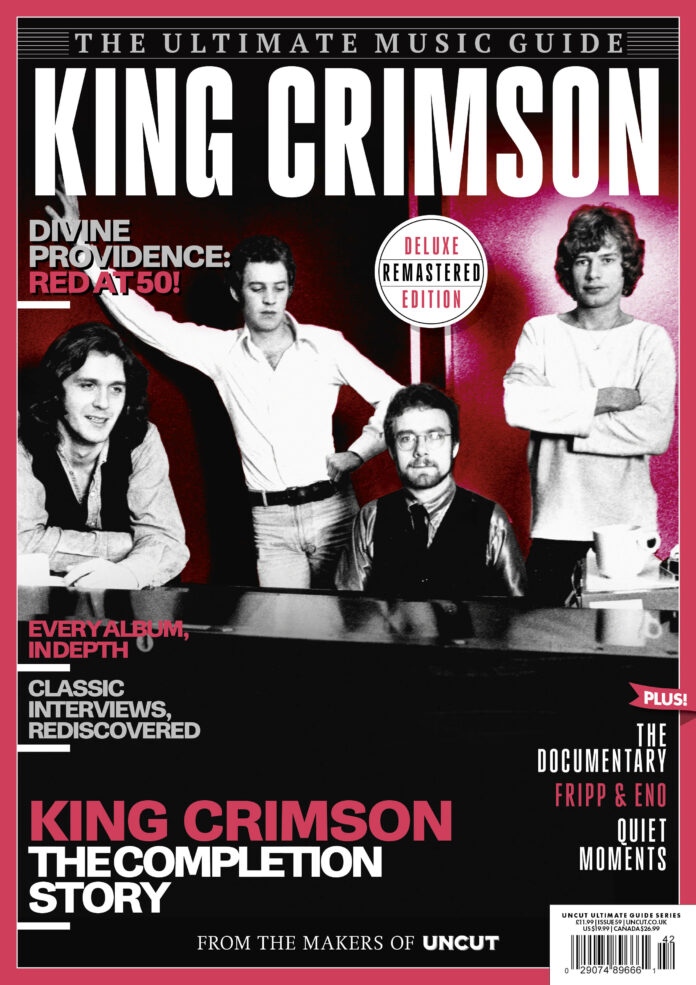Neurosurgeons scream for more...
Neurosurgeons scream for more…
As you’ll discover in this deluxe and expanded Ultimate Music Guide, when we speak of King Crimson, we’re really speaking of Robert Fripp, the guitarist and sole member to have lasted the 50 years of the band’s lifetime. So warm is his greeting, so insistent his use of one’s first name, you could come to think you and Robert Fripp were pretty well acquainted even though you have only met on a video call a few times.
He can be wonderfully candid. He will speak very movingly about fallen band members like John Wetton, who fronted the group at the time of Red (which celebrates its 50th anniversary round about now), or Bill Rieflin, the American drummer/polymath who was a key part of the last three drummer line-up of the group, until his untimely death from cancer.
More cheerily, he might allow himself to digress into discussing the shortcomings of former members. With a twinkle of the eye, he might tell you with devastating dismissiveness about the former member who is “A good man. A very good man. A century ago who would have commanded a colonial outpost somewhere…” On one occasion he spent maybe 10 minutes patiently waiting as he guided me in trying to articulate a musician’s character flaws – “You’re very close…” – presumably so he might have the satisfaction of knowing his feelings weren’t held in isolation. He took a toilet break while I gathered my thoughts.
His is an unknowable combination of candour and reserve, control and release, spirituality and fun. The churn of Crimson members down the band’s history suggest that it’s not been a combination to work for everyone, but it has produced an impressively powerful musical legacy, which evolved in influence down the decades as the band took on new shapes.
If Fripp was present it was always King Crimson, though, and that’s the story, along with coverage of solo work and collaborations, which is told here. Much as Fripp has defined the course of the group through its life, so now, after five years which have found the band reconfiguring, negotiating the pandemic, touring with several of its members in their mid-70s, and revivifying their older material in new arrangements, that the band’s work is now finished.
“I’ll bring you up on that if I may,” Fripp told me a couple of years ago. “There are three forms of ending: a conclusion, a completion and a finish. When you finish a process, something is lost, like King Crimson in 2008 really was finished. A conclusion is where nothing is lost but nothing particularly is gained. And a completion is a new beginning.”
King Crimson, he went on to say, had reached a completion. But he acknowledged that the sound of a new beginning would always be tantalising.
“I don’t have to worry about it,” he said, retreating into a rather more mysterious space. “Whatever seeks to come next in my life will tell me.”
Enjoy the magazine. You can get one in the shops now – or here.



